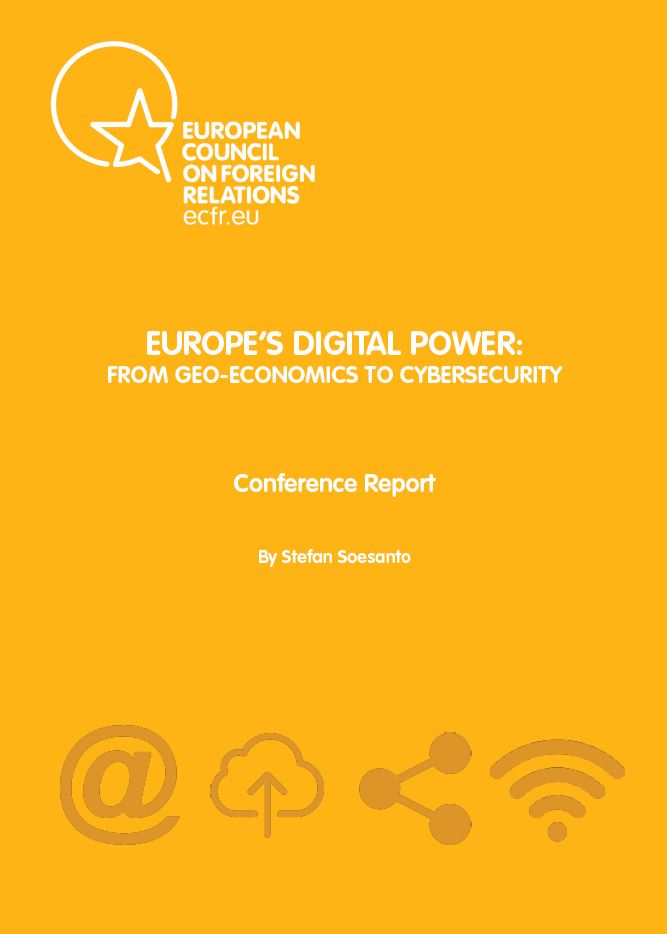No middle ground: Moving on from the crypto wars
The ‘second crypto war’ is in full swing; European governments need to stop trying to defeat encryption and get more sophisticated themselves instead

ECFR Alumni · Former Cybersecurity & Defence Fellow
Cybersecurity, Cybercrime, Cyberwarfare, Integrated Air and Missile Defence, Defence policies in East Asia, NATO force posture
English, German, Dutch, Japanese, and Korean
Stefan Soesanto used to work for ECFR as a Cybersecurity & Defence Fellow until 2018.
The ‘second crypto war’ is in full swing; European governments need to stop trying to defeat encryption and get more sophisticated themselves instead
Finding a healthy balance between a nation’s national security needs and the government’s responsibility to keep the public secure in cyberspace, is a complicated task
The context Now is not the moment for either the European Union or the United Kingdom to risk allowing the political tensions around Brexit to…
It is high-time for the Europeans to wake up from their hopes and dreams to build norms and rules for state behaviour in cyberspace
The top down UN GGE process appears dead in the water. International norms and laws for responding to cyber attacks must now be built from the bottom up
Part of the solution is to rely on the internet’s most essential strength – its vast army of ordinary users
Rarely does a week go by these days without a ‘cyber attack’ making the headlines across the globe. It may be the massive WannaCry ransomware…
So stark is the absence of interesting information that one could conclude that the Macronleak was a false flag operation designed to point the finger at Russia

This paper puts forward an understanding of digital power which rests on, first, the strength of the digital economy and, second, cyber capability
ECFR’s director Mark Leonard speaks with ECFR Policy Fellows Stefan Soesanto, Kadri Liik and Gustav Gressel on Russia's interferences in Western politics. The podcast was…
The ‘second crypto war’ is in full swing; European governments need to stop trying to defeat encryption and get more sophisticated themselves instead
The context Now is not the moment for either the European Union or the United Kingdom to risk allowing the political tensions around Brexit to…

This paper puts forward an understanding of digital power which rests on, first, the strength of the digital economy and, second, cyber capability
Finding a healthy balance between a nation’s national security needs and the government’s responsibility to keep the public secure in cyberspace, is a complicated task
It is high-time for the Europeans to wake up from their hopes and dreams to build norms and rules for state behaviour in cyberspace
The top down UN GGE process appears dead in the water. International norms and laws for responding to cyber attacks must now be built from the bottom up
Part of the solution is to rely on the internet’s most essential strength – its vast army of ordinary users
Rarely does a week go by these days without a ‘cyber attack’ making the headlines across the globe. It may be the massive WannaCry ransomware…
So stark is the absence of interesting information that one could conclude that the Macronleak was a false flag operation designed to point the finger at Russia
The curtailment of law enforcement cooperation between the UK and the European Union will be an inevitable consequence of the British exit
The digital challenges related to Brexit are stark but clear. There is no excuse for any policy misstep from May's government
ECFR’s director Mark Leonard speaks with ECFR Policy Fellows Stefan Soesanto, Kadri Liik and Gustav Gressel on Russia's interferences in Western politics. The podcast was…